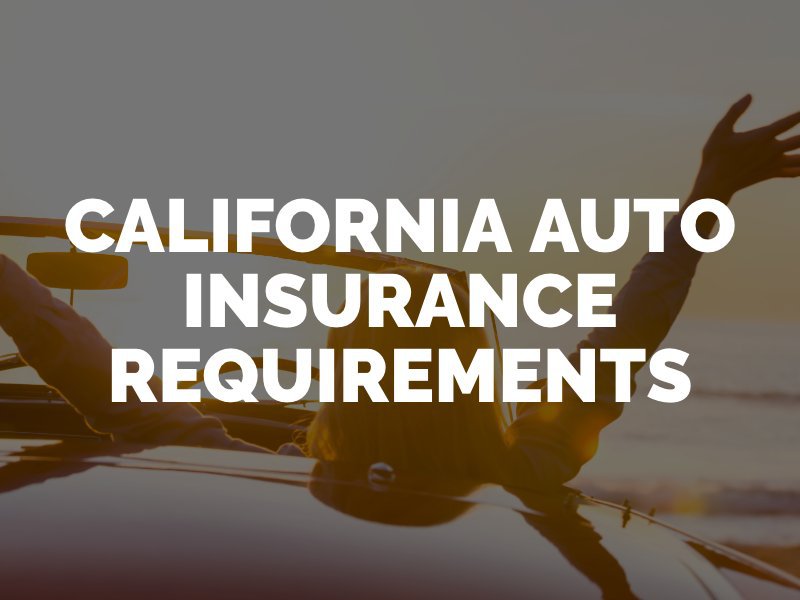California Auto Insurance Requirements
Almost all states require their drivers to carry proof of financial responsibility in the form of auto insurance. After an auto accident, car insurance will help at-fault parties pay for damages such as the victims’ medical bills and vehicle repairs. California is no exception. All motor vehicle operators in California must carry at least the minimum required amounts of auto insurance to lawfully be on the road.

Minimum Liability Insurance Requirements in California
California Insurance Code 11580.1b outlines the state’s minimum required amounts of liability insurance for private passenger vehicles. Liability insurance covers the other party’s damages, not the policyholder’s. It is the only type of car insurance required in California, as a fault-based state. In no-fault states, the laws require drivers to also carry first-party insurance for their own damages, such as personal injury protection insurance.
- Bodily injury/death insurance per person: $15,000
- Bodily injury/death insurance per car accident: $30,000
- Property damage liability insurance per accident: $5,000
California is a 15/30/5 car insurance state. As long as a driver in California purchases at least these types and amounts of insurance, he or she will meet the requirements of the law. It is optional to purchase other types of car insurance, such as collision, comprehensive, medical pay and uninsured/underinsured driver insurance.
Required Proof of Insurance
After a driver purchases the required amounts of car insurance in California, he or she must carry proof of insurance. Drivers will need this for processes such as registering their vehicles in the state. They will also need proof of insurance during traffic stops to show law enforcement officers upon request. A digital version will suffice if the driver does not have a paper copy. If a driver cannot show proof of insurance, he or she may face driver’s license suspension until the driver can show proof.
Penalties for Driving While Uninsured
A driver can only avoid paying for standard car insurance in California if he or she makes a cash deposit to the Department of Motor Vehicles of $35,000, receives a self-insurance certificate or obtains a $35,000 surety bond from a licensed issuer. Failing to comply with California’s financial responsibility requirement can result in a minimum fine of $100, with additional penalty assessments that will result in an end total of about $450. Second or subsequent offenses lead to maximum fines of $500 each – an amount that can escalate to about $2,500 with additional fees. An uninsured driver may also face license suspension, vehicle impoundment, suspended vehicle registration and an SR-22 insurance requirement.
California’s Fault Insurance Laws
California uses a tort-based system, the traditional insurance process, to determine liability after a car wreck. In a tort system, the party that caused the crash will be financially responsible for damages. The victim will have the burden of proving the other driver’s fault for the crash to receive insurance settlement benefits. It is important for all drivers in California to obey the state’s insurance requirements. Otherwise, after an accident, the at-fault driver might be unable to pay.
How to Recover After an Accident With an Uninsured Driver
If you get into a wreck in California with an uninsured or underinsured driver, you might have limited options for financial recovery. First, contact your insurance provider to find out if you have uninsured driver insurance. You must turn this coverage down in writing when you purchase car insurance. This coverage could help you pay for your damages. Then, contact a Los Angeles car accident attorney about a potential car accident lawsuit.
An uninsured driver might have the funds to pay for your losses out of pocket. However, many drivers that do not carry insurance also cannot afford to pay judgment awards. Instead, you may be able to hold a third party responsible, such as the company that employs the at-fault driver, the manufacturer of a defective auto part or the city for a roadway defect. A conversation with a car accident lawyer can express to you all your options for financial recovery after a collision with an uninsured driver in California.
